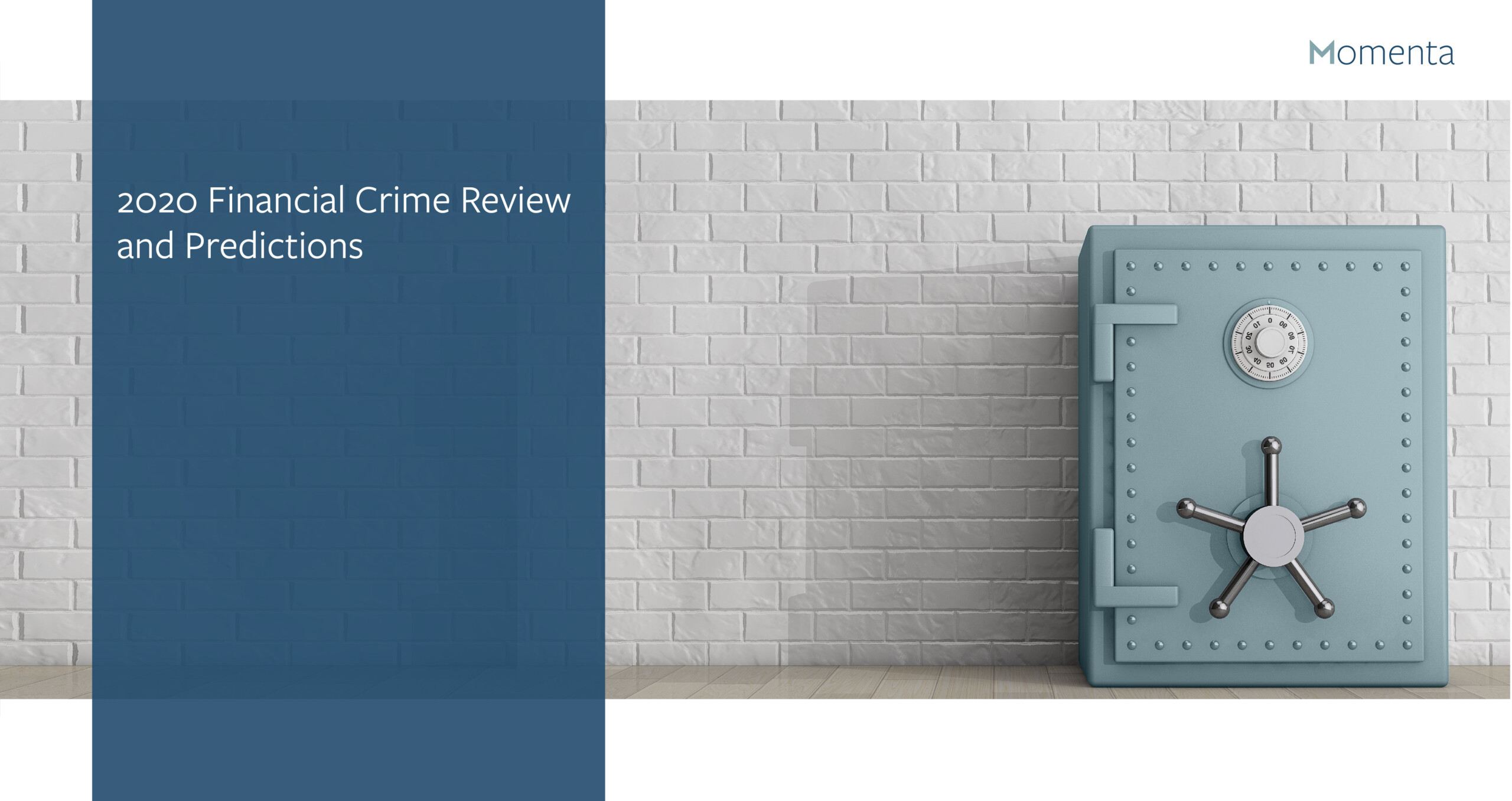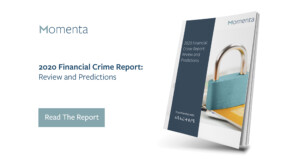2020 Financial Crime Review and Predictions
As criminals have adapted to a faster, digital environment, risk compliance has become a key component for all in the sector. One of the biggest focuses for 2020 will be better understanding data and its role in deterring financial crime and improving AML/KYC practises in organisations. Criminals circumnavigate through weaknesses in data and use this as a platform to harness their crimes, which is why data will continue to be a key trend in 2020. Firms are being encouraged to use data’s transformative powers in understanding and bettering KYC and Customer Due Diligence- CDD, practises in institutions.
What did 2019 reveal with regards to trends in financial crime and how can organisations analyse 2019’s data to pre-empt financial crime in 2020? Globally 2019 saw some of the biggest AML/KYC fines seen in Europe, the US and Australia. Regulators are now placing significant pressure on firms to ensure that compliance is key, but what of regulatory compliance with countries like the UK who have left the EU?
With its European departure, many will question what implications Brexit will have on Financial Crime and what laws, regulations and agreements remain intact with global territories, especially that of the European Union. Formal trade negotiations will prove to be difficult especially with a December 2020 deadline.
2019 saw $5.7 billion in global money laundering fines accompanied by more complex threat advances and higher compliance costs, leaving financial institutions in need of advanced analytics to combat financial crime. 5AMLD the new regulation on the block, with the 6AMLD shortly behind it, regulation becomes key for many industries that are not used to vast amounts of regulation. AML/MT are not the only issues on the rise.
2020 has already seen a host of data security breaches. Hackers are concentrating on larger targets with higher rewards. This year has seen a cyber-attack hit a major facilities company which has half a million employees worldwide (Joe Tidy & David Molloy, 2020). Global cybercrime is predicted to cost around $6 trillion annually by 2021. Data and information sharing are key in combating and understanding financial crime. Organisations need the ability to combine all this data from across channels and sources to build a clear picture of financial crime and power more effective detection and prevention measures. Even these first two requirements present several problems for a variety of organisations (Payments Card and Mobile,2020). Barriers to sharing information can lead to adverse effects in trying to combat attacks.
A key debate in 2020 will still centre around technology’s role in assisting the fight against financial crime, as well as the potential risk it may bring. From cloud-based core banking platforms to taking an agile approach to FinTech threats. 2019 saw Financial Services and banking, adopting FinTech trends and developments to secure, simplify and customise the way customers engage and retain their products services. FinTech and RegTech will remain supreme in 2020 and will offer a plethora of new solutions, yet again disrupting Financial Services. With new FinTech implementations come a new risk, so 2020 will see a rise in cybersecurity investment.
The pandemic has also brought a surplus of issues one of them being a significant increase of cyber-attacks, fraud, and hacks. Action Fraud reported that Coronavirus scams cost UK victims over £800k in February 2020. A total of £1.6 million worth of fraud has now been recorded, indicating the market for fraud in the UK is rife. Fraud scams ranged from ordering fake face masks to Coronavirus related phishing emails. Criminals have been reported to send out phishing emails supposedly from well-established health bodies such as WHO asking for personal details and transfers. The sad reality is that criminals use the fear Coronavirus creates, to attack the vulnerable and they have done so successfully and rather lucratively too. The UK is not the only one to see an influx of financial crime. Cybercrime in the US has increased significantly as well as in Italy, and Iran. INTERPOL – The International Criminal Police Organisation, has also cautioned the global public releasing a statement about buying medical supplies online and what to look out for, to avoid criminals when it comes to telephone fraud and phishing emails.
2020 Key trends and developments will include:
- Global regulators turning to technologies to assist them with monitoring, detection, and information sharing.
- Machine learning and AI will be the most adopted technologies for real-time transactional data analysis.
- There will be a key focus on strengthening UBO verification in global anti-money laundering compliance.
- Increased transparency and more information gathering will be required.
- The promotion of digital identity technology and verification will be used to securely allow remote financial services onboarding and transactions.
- Automated AML checks will be a key trend that firms will adopt in 2020 to fasten AML checks and turn to more cost-effective solutions to pick up on money launderers with more ease.
- More IS roles will be brought on to projects in hopes to strengthen IS strategies and systems.
Download the full report here: https://bit.ly/3eLSZgu


